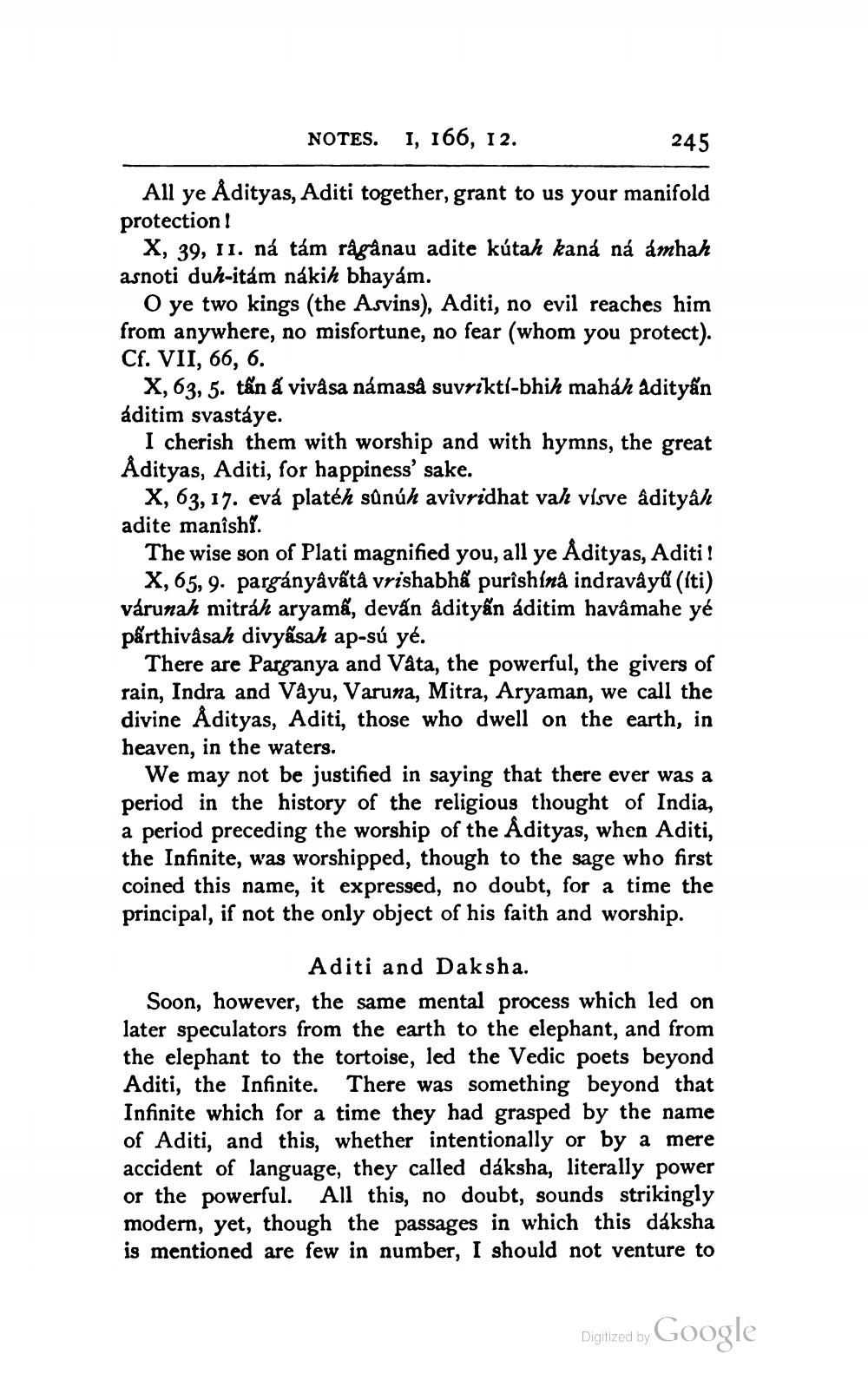________________
NOTES. I, 166, 12.
245
All ye Ådityas, Aditi together, grant to us your manifold protection!
X, 39, 11. ná tám rágånau adite kútah kaná ná amhah asnoti duh-itám nákih bhayám.
O ye two kings (the Asvins), Aditi, no evil reaches him from anywhere, no misfortune, no fear (whom you protect). Cf. VII, 66, 6. | X, 53, 5 tấn vivisa nămasa suvrikti-bhi mahah Adityến áditim svastaye.
I cherish them with worship and with hymns, the great Ådityas, Aditi, for happiness' sake.
X, 63, 17. eva platéh súnúh avivridhat val visve adityah adite manîshi.
The wise son of Plati magnified you, all ye Ådityas, Aditi!
X, 65, 9. pargányáváta vrishabhä purishina indravâyú (Iti) várunah mitráh aryamã, deván âdityần áditim havâmahe yé pârthivâsah divyásah ap-sú ye.
There are Parganya and Vâta, the powerful, the givers of rain, Indra and Vayu, Varuna, Mitra, Aryaman, we call the divine Adityas, Aditi, those who dwell on the earth, in heaven, in the waters.
We may not be justified in saying that there ever was a period in the history of the religious thought of India, a period preceding the worship of the Adityas, when Aditi, the Infinite, was worshipped, though to the sage who first coined this name, it expressed, no doubt, for a time the principal, if not the only object of his faith and worship.
Aditi and Daksha. Soon, however, the same mental process which led on later speculators from the earth to the elephant, and from the elephant to the tortoise, led the Vedic poets beyond Aditi, the Infinite. There was something beyond that Infinite which for a time they had grasped by the name of Aditi, and this, whether intentionally or by a mere accident of language, they called dáksha, literally power or the powerful. All this, no doubt, sounds strikingly modern, yet, though the passages in which this dáksha is mentioned are few in number, I should not venture to
Digitized by
Digitized by Google




